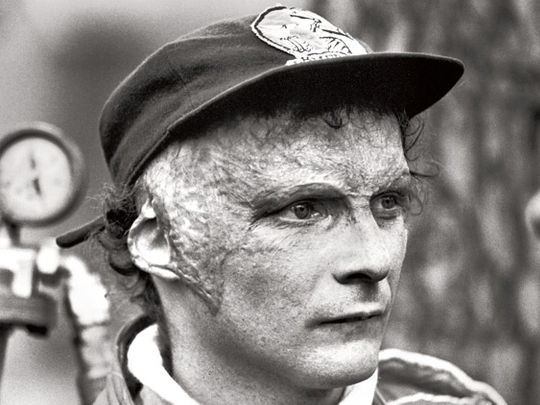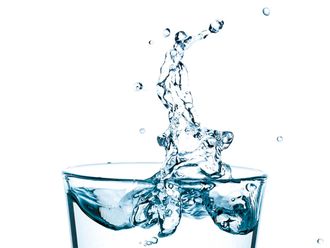
Niki Lauda's life has been all about three things; money, racing and courage. He used money to get into F1, and used racing to make more money. He nearly died in a horrific crash, but was back from a coma into the cockpit to race again with his third-degree burns still fresh and bleeding; described by Jackie Stewart as the most courageous comeback in the history of sport.
Born Nicholas Andreas Lauda to a wealthy Austrian businessman, Niki would never have been in need of money, if only he had gone down the path his father had chosen for him. But young Niki was clear about what he wanted and turned his back on studies as well as his father's wealth. He chose motor racing.
With cash borrowed from various banks, he started racing in a Mini in 1968, and three years later bought his way into the March F2 and F1 teams using still more borrowed money. After a disappointing F1 season in 1972, he took out more loans to strike a deal with BRM racing team, where he started proving his driving abilities.
Deep in debt, he was staring at the possibility of being bound by a two-year contract with BRM, when a friend's recommendation got him a surprise offer from Enzo Ferrari in 1974. With all his liabilities written off, Niki could concentrate on his driving and went on to become F1 world champion in 1975 driving his Ferrari 312T to GP wins in Monaco, Belgium, Sweden, France and the USA.
Having won five races before summer, Niki looked to be well on track to repeat the feat in 1976 when he started out on the German GP at the treacherous Nürburgring Nordschleife. But, on the second lap, his car crashed and exploded. Trapped in the wreckage, Niki suffered severe burns to his head and hands and damaged his lungs after inhaling the poisonous fumes.
Not one to give up easily, the unrelenting Niki was back on the race track just six weeks later, finishing the Italian Grand Prix in fourth place. In the final race of the season at Japan's Fuji circuit, Niki, who was three points ahead of McLaren's James Hunt in the championship standings, decided it was unsafe to drive in the heavy rain and pulled out after the second lap.
Hunt won the title, but Niki fell out of favour with Enzo, who was already planning to replace him with Gilles Villeneuve. Peeved at this move, Niki drove in anger to win the 1977 driver's title with two races remaining and left Ferrari skipping the last two GPs to join Bernie Ecclestone's team Brabham. Finishing fourth in the 1978 season and failing to impress in the next season, he retired from Formula 1 to start his own airline business.
But a couple of years later, when he needed more money to fund his business, he turned to F1 again, signing a multi-million-dollar deal with McLaren in 1982.
In 1984, he beat teammate Alain Prost to win his third F1 driver's title, and a year later, having proven himself yet again, he left the track for good.
The fact that Niki is as astute a businessman as he is a legendary driver is evident — he still makes millions of euros by allowing sponsors to advertise on the trademark red cap he wears to mask his battle scars. Brilliant.











